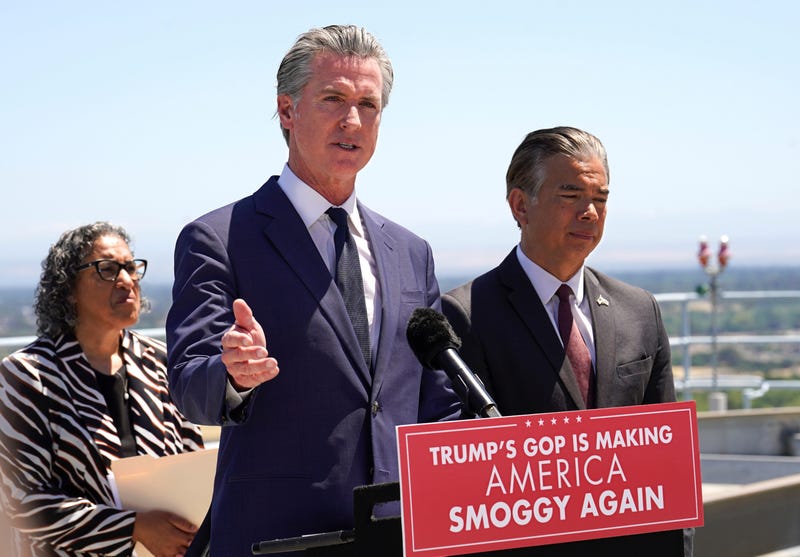
SACRAMENTO, Calif. (AP) — A U.S. appeals court on Tuesday paused a California law set to take effect in January requiring large companies to report every two years on how climate change could hurt them financially.
Another new law requiring major companies to annually disclose their carbon emissions can stay in place for now, the court ruled.
The policies would be the most sweeping of their kind in the nation, and proponents say they would increase transparency and encourage companies to assess how they can cut their emissions.
The U.S. Chamber of Commerce asked the 9th U.S. Circuit Court of Appeals to pause the laws, which were set to take effect next year, arguing they violate the companies’ First Amendment rights. The group also asked the Supreme Court last week to weigh in. The Chamber of Commerce on Tuesday withdrew its emergency appeal to the Supreme Court, citing the lower court’s decision.
“We look forward to continuing our appeal and securing an injunction of both climate disclosure laws, which result in massive compliance costs for companies and their supply chains,” Chamber of Commerce lawyer Daryl Joseffer said of Tuesday's ruling. “One state should not have the ability to impose this kind of burden on the entire country.”
Lindsay Buckley, a spokesperson for the California Air Resources Board, which is drafting rules to implement the laws, said the agency was reviewing the ruling and could not comment further. The state has argued that the laws don’t violate the First Amendment because commercial speech isn’t protected the same way under the Constitution.
The financial risk disclosure law, which Democratic Gov. Gavin Newsom signed in 2023, applies to companies making more than $500 million a year that do business in California. The Air Resources Board estimates more than 4,100 businesses will have to comply with the legislation.
The emissions reporting law, which the state passed the same year, applies to businesses that make more than $1 billion a year and do business in the state — which covers roughly 2,600 companies, according to state air regulators. They will have to report planet-warming pollution from burning fossil fuels directly, as well as releases from activities such as delivering products from warehouses to stores and employee business travel.
The U.S. Securities and Exchange Commission approved a rule last year requiring some public companies to report their greenhouse gas emissions and climate risks, but the agency paused the regulation amid litigation.